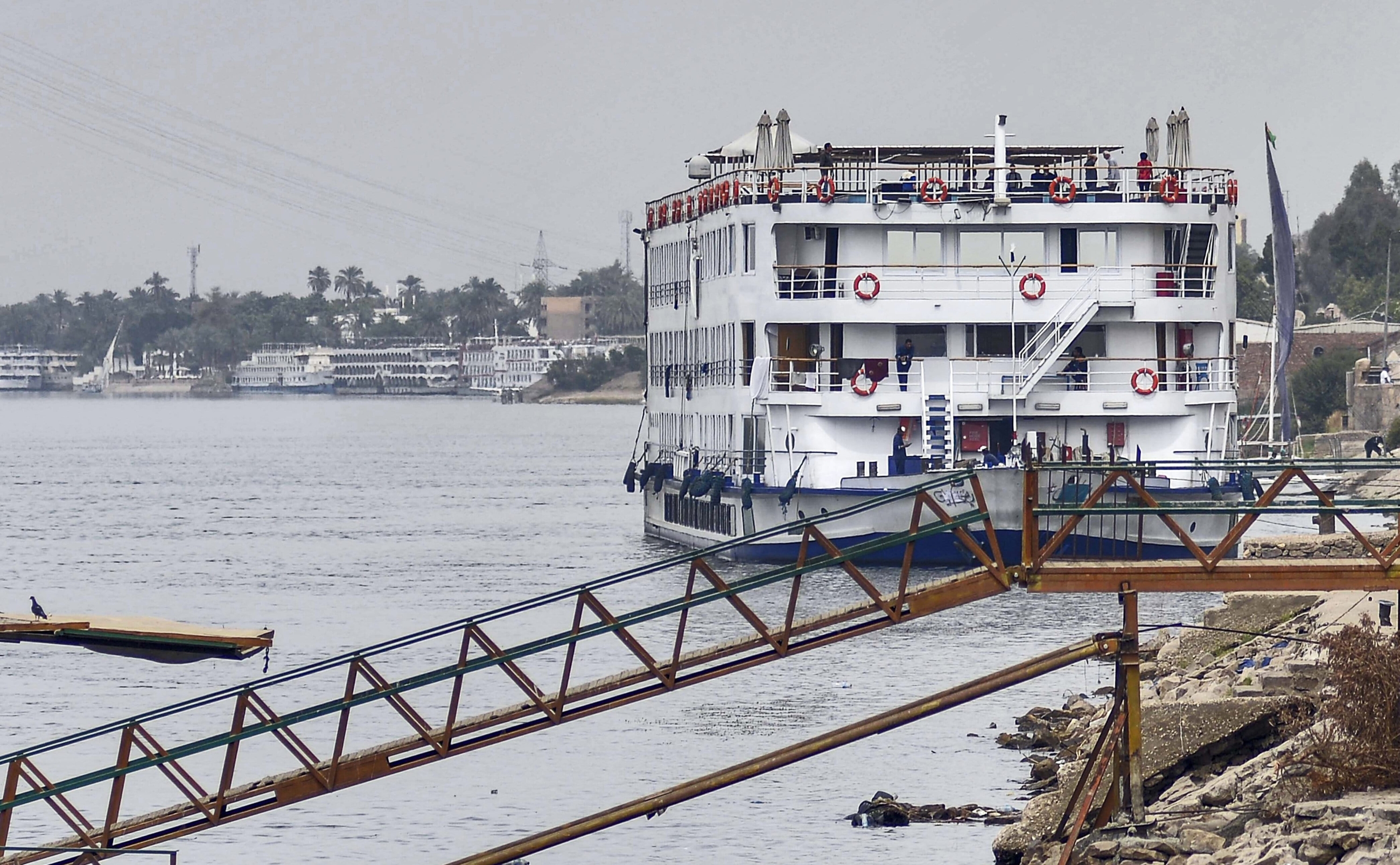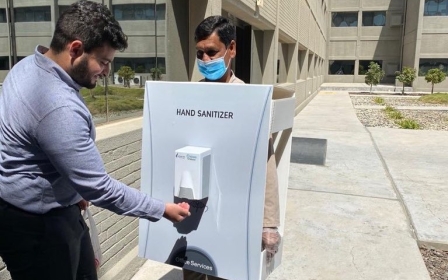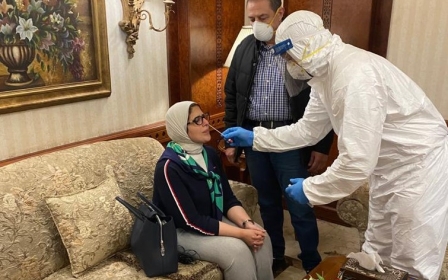Coronavirus: DNA test shows Taiwanese woman 'likely' caught COVID-19 in Egypt

The Taiwanese government has said that an elderly woman who was traveling on a cruise ship that is now quarantined in Egypt, was likely infected with the coronavirus while there.
Taiwan's announcement contradicts Egypt's claims that she had been the source of disease which infected at least 45 people on board, including 12 Americans, according to reports on Tuesday.
Egyptian Health Minister Hala Zayed said last Friday that the Taiwanese tourist had been the source of the virus - also known as COVID-19.
However, Taiwan's Central Epidemic Command Center (CECC) said that it sequenced the DNA of the virus strain found in the woman's blood, which showed her infection had little similarity with the strain found in other Taiwanese patients.
"It is closer to those found in coronavirus infection samples in Europe, including those in Italy, Brazil and Nigeria," said Yeh Shiou-hwei, a microbiology professor at National Taiwan University.
Yeh said the DNA sequencing is like doing a "paternity test" by comparing it to other coronavirus cases found around the globe.
While Iran remains the epicentre of the coronavirus in the Middle East, Egypt continues to be a country of concern due to its dependence on foreign tourism.
Egypt currently has 59 cases of the coronavirus; and has reported one death.
Kuwait, Oman, Qatar and Saudi Arabia have announced either a temporary ban on visitors coming from Egypt through intermediate points or requiring Egyptian visitors to have an official proof that they do not carry the virus.
On Tuesday, Jordan closed its border with Egypt, as well as the West Bank and Iraq, over fears of a coronavirus outbreak.
A Jordanian official told Al Jazeera that the country's biggest concern comes from Egypt because the "Egyptian government doesn't seem to be telling the truth about their situation".
He said Jordan had taken rigorous steps to ensure strict health and travel checks on those coming from Egypt and other countries.
Middle East Eye propose une couverture et une analyse indépendantes et incomparables du Moyen-Orient, de l’Afrique du Nord et d’autres régions du monde. Pour en savoir plus sur la reprise de ce contenu et les frais qui s’appliquent, veuillez remplir ce formulaire [en anglais]. Pour en savoir plus sur MEE, cliquez ici [en anglais].




